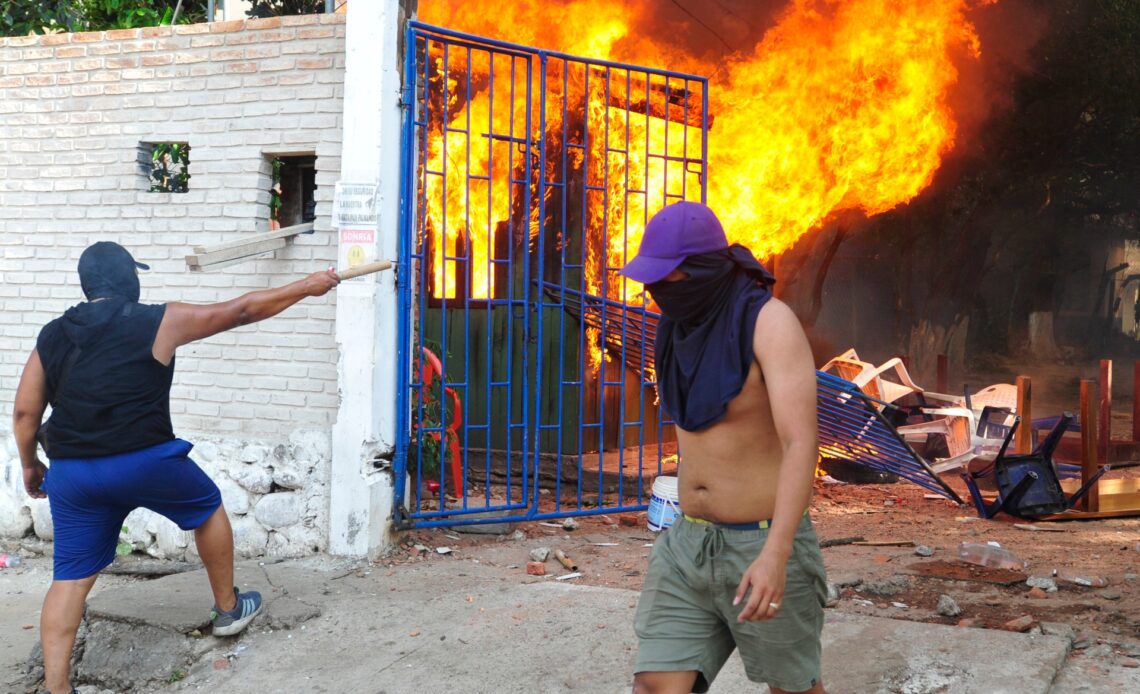Six months ago, Miguel Nunez Saenz thought he would be spending November 16 at home in Santa Cruz in eastern Bolivia, waiting patiently for census workers to knock on his door and take his personal details.
Instead, the 47-year-old teacher spent the day at a barricade made of stones and tyres, flying Santa Cruz’s green-and-white flag. He and his neighbours are taking part in a long-running strike to protest a government decision to delay the national census until 2024.
“It’s really important because it means resources for our department and our communities,” Nunez Saenz told Al Jazeera via WhatsApp from the blockade. “We need schools, hospitals and lots of things to improve the quality of living for the inhabitants [here].”
The left-wing government of President Luis Arce decided to push the census date back after local authorities raised concerns about COVID-19, the challenge of incorporating Bolivia’s Indigenous languages, and the fact that many rural workers travel in November for the sugarcane harvest.
But the Pro Santa Cruz Civic Committee, the powerful right-wing group leading the strike, believes the delay is politically motivated. Its members predict the census will show population growth in cities like Santa Cruz, Bolivia’s most populous city and a major agricultural hub.
Voters in Santa Cruz are more likely to oppose the current government. In the 2020 general elections, the ruling party, Movement Towards Socialism (MAS), obtained 55 percent nationally but just 36 percent in Santa Cruz.
Meanwhile, Creemos, a Christian conservative coalition led by former Civic Committee president Luis Fernando Camacho, obtained 45 percent of the vote there.
In Bolivia, census data is used to determine the distribution of public funds. The number of legislative seats allocated to each of Bolivia’s nine departments in the lower house is also partly based on population size. The last census was held in 2012.
The strike has become violent in some areas, as demonstrators block roads and clash with the police and opposing groups that are trying to clear the routes. For many in Bolivia, the dispute carries echoes of the conflict that forced long-running left-wing president Evo Morales out of power amid controversial fraud allegations in 2019.
Minister of the Presidency Maria Nela Prada said on November 10 that four people had been killed in the strike, which started on October 22. A rural…

